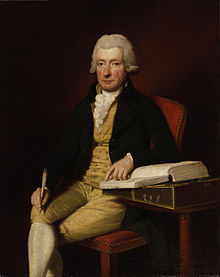She came--she is gone--we have met--
And meet perhaps never again;
The sun of that moment is set,
And seems to have risen in vain.
Catharina has fled like a dream
(So vanishes pleasure, alas!)--
But has left a regret and esteem
That will not so suddenly pass.
The last evening ramble we made,
Catharina, Maria, and I,
Our progress was often delay-d
By the nightingale warbling nigh.
We paused under many a tree,
And much she was charm'd with a tone,
Less sweet to Maria and me,
Who so lately had witness'd her own.
My numbers that day she had sung,
And gave them a grace so divine,
As only her musical tongue
Could infuse into numbers of mine.
The longer I heard, I esteem'd
The work of my fancy the more,
And e'en to myself never seem'd
So tuneful a poet before.
Though the pleasures of London exceed
In number the days of the year,
Catharina, did nothing impede,
Would feel herself happier here;
For the close-woven arches of limes
On the banks of our river, I know,
Are sweeter to her many times
Than aught that the city can show.
So it is when the mind is endued
With a well-judging taste from above,
Then, whether embellish'd or rude,
'Tis nature alone that we love.
The achievements of art may amuse,
May even our wonder excite;
But groves, hills, and valleys diffuse
A lasting, a sacred delight.
Since then in the rural recess
Catharina alone can rejoice,
May it still be her lot to possess
The scene of her sensible choice!
To inhabit a mansion remote
From the clatter of street-pacing steeds,
And by Philomel's annual note
To measure the life that she leads.
With her book, and her voice, and her lyre,
To wing all her moments at home;
And with scenes that new rapture inspire,
As oft as it suits her to roam;
She will have just the life she prefers,
With little to hope or to fear,
And ours would be pleasant as hers,
Might we view her enjoying it here.
Catharina
William Cowper
(1)
Poem topics: city, dream, fear, feel, home, hope, london, nature, river, sun, tree, work, evening, wing, pleasure, voice, rapture, sweet, tongue, moment, Print This Poem , Rhyme Scheme
Submit Spanish Translation
Submit German Translation
Submit French Translation
Write your comment about Catharina poem by William Cowper
Best Poems of William Cowper
